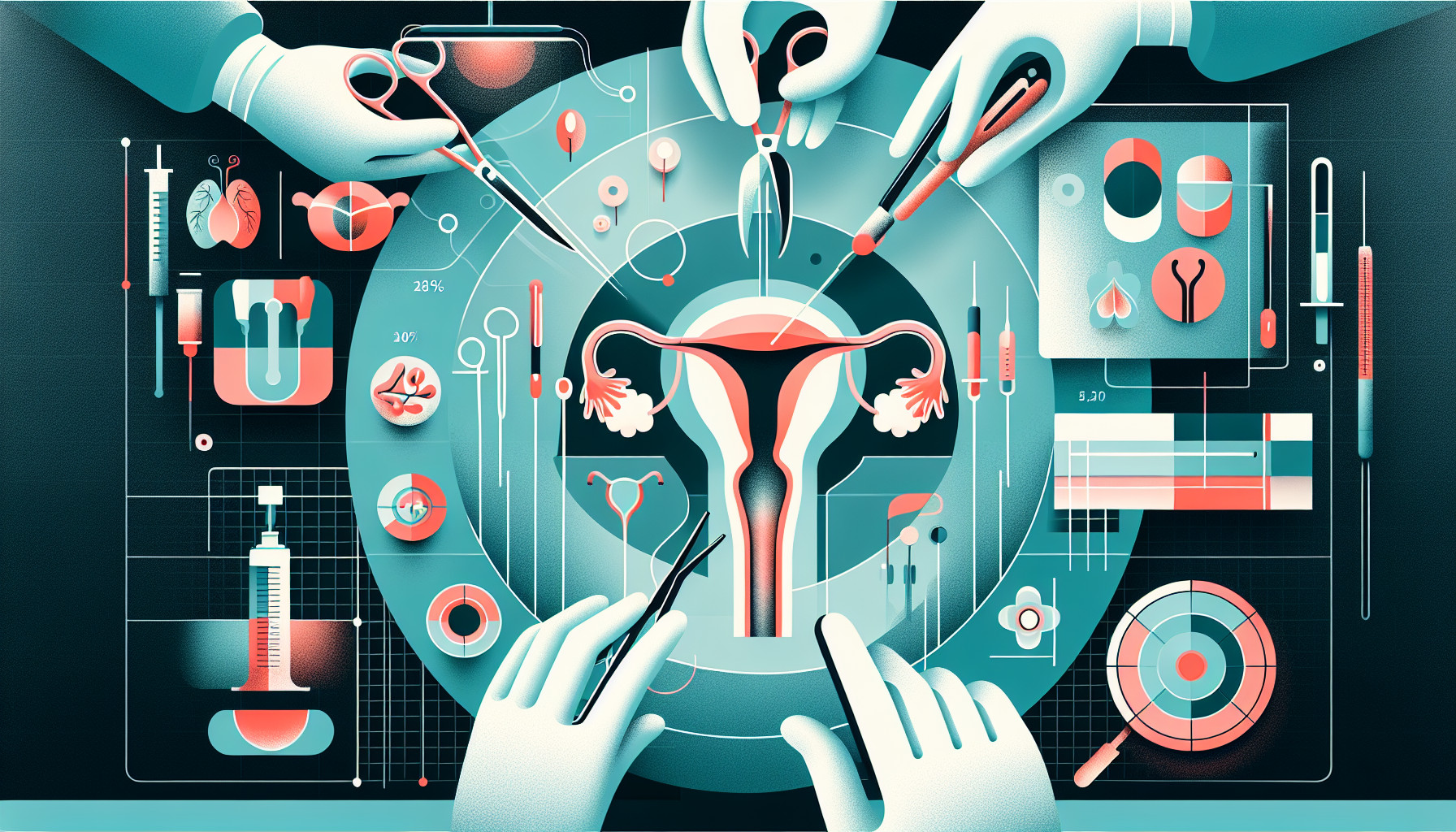Our Summary
This research paper investigates the effects of a surgical procedure called urethroplasty, which is used to treat blockages in the urethra, on sexual function. It finds that the surgery can lead to some level of erectile dysfunction, especially in the case of anterior urethroplasty (surgery on the front part of the urethra). However, this erectile dysfunction is usually temporary and most patients recover within a year. Patients with blockages in the posterior urethra (the back part) often already have erectile dysfunction before the surgery, and the procedure may actually improve this. The surgery also tends to improve ejaculatory function by removing the blockage, although some patients may notice a decrease in the force of ejaculation. The study concludes that while urethroplasty generally has minimal permanent impact on sexual function, the effects can vary from patient to patient. Therefore, doctors should inform patients about these potential risks before the surgery.
FAQs
- What is the potential impact of urethroplasty on sexual function?
- Can urethroplasty cause erectile dysfunction and is it permanent?
- Does urethroplasty surgery improve ejaculatory function, and how does it affect the force of ejaculation?
Doctor’s Tip
A doctor may advise a patient undergoing urethroplasty to discuss any concerns about sexual function before and after the procedure. It is important for patients to have realistic expectations and understand that there may be temporary changes in erectile function and ejaculation. Open communication with the healthcare team can help ensure proper support and management of any sexual side effects that may occur. Additionally, patients should follow post-operative instructions carefully to optimize recovery and minimize complications.
Suitable For
Patients who are typically recommended urethroplasty are those who have blockages in their urethra that are causing urinary symptoms such as difficulty urinating, frequent urinary tract infections, or urinary retention. These blockages can be caused by a variety of factors such as scar tissue from previous surgeries, trauma to the urethra, or congenital abnormalities. Urethroplasty is usually recommended when other less invasive treatments have been unsuccessful in relieving the blockage.
Patients with strictures (narrowing) in the urethra are also commonly recommended for urethroplasty. Strictures can cause symptoms similar to blockages, such as difficulty urinating and urinary retention. Urethroplasty involves removing the strictures and reconstructing the urethra to allow for better urine flow.
Overall, patients who are experiencing significant urinary symptoms due to blockages or strictures in the urethra are typically recommended for urethroplasty to improve their quality of life and prevent complications such as recurrent urinary tract infections or urinary retention.
Timeline
Before Urethroplasty:
- Patient experiences symptoms of urethral blockage, such as difficulty urinating, weak urine stream, frequent urination, and urinary retention.
- Patient undergoes various diagnostic tests, such as urethroscopy and uroflowmetry, to determine the extent and location of the blockage.
- Patient may undergo a trial of conservative treatments, such as urethral dilation or urethrotomy, before opting for urethroplasty.
After Urethroplasty:
- Patient undergoes the surgical procedure, which involves removing the blockage and reconstructing the urethra.
- Patient may experience temporary erectile dysfunction, especially with anterior urethroplasty, but this usually resolves within a year.
- Patients with posterior urethral blockages may see improvements in erectile function after surgery.
- Ejaculatory function may improve after surgery, although some patients may notice a decrease in the force of ejaculation.
- Patient undergoes follow-up appointments to monitor recovery and address any complications.
- Patient may require additional treatments, such as urethral dilation or urethrotomy, if the blockage recurs.
What to Ask Your Doctor
Some questions a patient should ask their doctor about urethroplasty include:
- What are the potential risks and complications of urethroplasty surgery?
- How will the surgery affect my sexual function, including erectile function and ejaculatory function?
- Will I need any additional treatments or therapies to address any sexual dysfunction that may result from the surgery?
- How long is the recovery process after urethroplasty, and when can I expect to resume sexual activity?
- Are there any lifestyle changes or modifications I should make before or after the surgery to improve my sexual function?
- What is the success rate of urethroplasty in treating urethral blockages, and what is the likelihood of experiencing sexual dysfunction as a result of the surgery?
- Are there any alternative treatments or procedures available for treating urethral blockages that may have a lower risk of impacting sexual function?
- How often will I need follow-up appointments after the surgery to monitor my sexual function and overall recovery?
Reference
Authors: Heinsimer K, Wiegand L. Journal: Curr Urol Rep. 2021 Feb 8;22(4):19. doi: 10.1007/s11934-021-01039-9. PMID: 33554283
